Glass Fiber Reinforced Polypropylene Compound
Adding glass fibers to polypropylene is one of the most effective ways to improve the mechanical properties of this polymer material. Glass fiber-reinforced polypropylene, due to its ideal combination of light weight and high strength, has found wide applications in the automotive, construction, and packaging industries. These polypropylene composites significantly enhance properties such as tensile modulus, impact resistance, and thermal stability.
The knowledge-based company, Baspar Tose’e Davam Shimi, in addition to the existing grades, is capable of custom designing and producing various reinforced polypropylene compounds to meet the diverse needs of its customers.
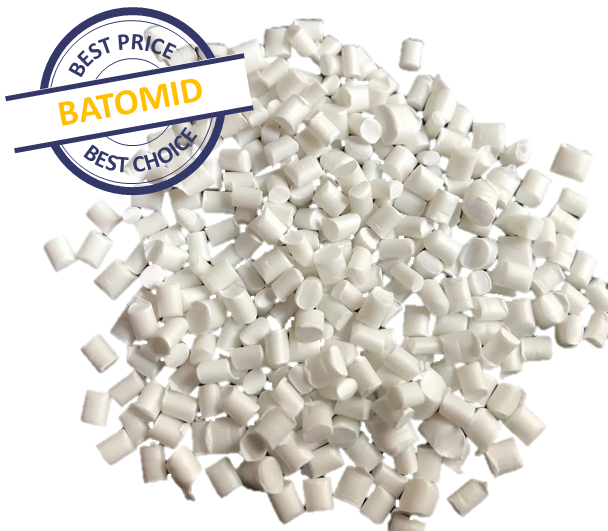
What is Glass Fiber-Reinforced Polypropylene?
Glass fiber-reinforced polypropylene is an engineered compound created by adding reinforcing fibers to polypropylene or polyethylene. This modification significantly improves the mechanical and thermal characteristics of the base polymers. The presence of these fibers forms a robust matrix within the polymer structure, resulting in enhanced heat resistance, better impact absorption, and reduced wear. These properties make glass fiber-reinforced polypropylene an ideal option for the automotive industry, particularly for under-the-hood components that require high thermal resistance and mechanical durability—such as engine parts that must withstand high temperatures and friction.
Baspar Tose’e Davam Shimi Company is capable of providing various types of fiber-reinforced polypropylene compounds, including homopolymer and copolymer variants, with glass fiber content ranging from 10% to 40% by weight. The engineering industry's need for components with high mechanical properties has driven us to consistently focus on supplying and producing various types of glass fiber reinforced polypropylene compounds and other high-quality mineral reinforcements with customization options. Engineering polypropylene compounds are available in a range of colors, including black, for both domestic and international markets. The engineers at Baspar Tose’e Davam Shimi are always striving to provide the most suitable grades of reinforced polypropylene compounds for the production of prefabricated and final parts through injection molding to consumers and engineers in manufacturing sectors. It is worth mentioning that designing and producing formulations tailored to customer specifications, as well as consulting and offering the best processing conditions to clients, are additional services provided by Baspar Tose’e Davam Shimi, carried out by the company's research and development team. Below, some of the properties of glass fiber reinforced polypropylene compounds are highlighted.
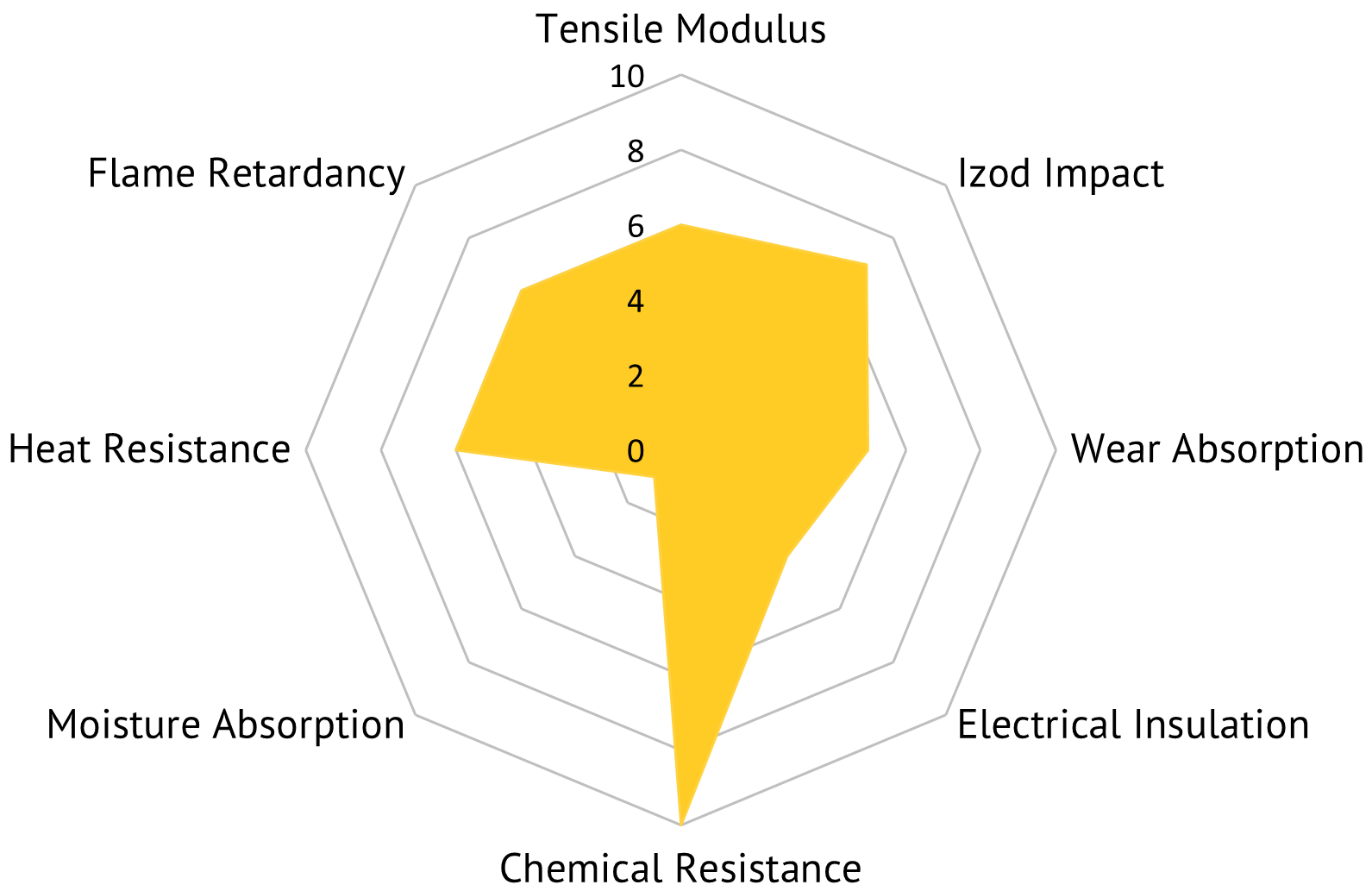
Variety of grades
| Specification | Unit | BATOLEN | ||||||
|---|---|---|---|---|---|---|---|---|
| C4GF20-NC | HGF30-NC | C4GF30-NC | C5GF30-NC | HGF40-NC | CGF30-BC | |||
| Physical Properties | Type | High quality 20% glass fiber reinforced | High quality 30% glass fiber reinforced | High quality 30% glass fiber reinforced | High quality 30% glass fiber reinforced | High quality 40% glass fiber reinforced | Good quality 30% glass fiber reinforced | |
| Density | g/cm3 | 1.06 | 1.12 | 1.12 | 1.12 | 1.16 | 1.12 | |
| Shrinkage | % | ≤0.5 | ≤0.5 | ≤0.9 | ≤0.7 | ≤0.5 | ≤0.5 | |
| Mechanical Properties | MFI | g/10min | 10 | 8 | 3 | 8 | 10 | 3 |
| Tensile strength at break | MPa | 60 | 75 | 75 | 70 | 60 | 50 | |
| Elongation at break | % | 3 | 5 | 9 | 9 | 3 | 6 | |
| Izod impact, notched | kJ/m2 | 10 | 8 | 14 | 14 | 10 | 11 | |
| Hardness | 70 | 75 | 75 | 75 | 70 | 70 | ||
| Temporal Properties | Melting temperature (10K/min) | ͦC | 160 | 165 | 165 | 160 | 165 | |
| Heat deformation temperature (0.45 MPa) | ͦC | 90 | 155 | 155 | 155 | 90 | 155 | |
| Heat deformation temperature (1.8 MPa) | ͦC | 80 | 80 | 150 | 150 | 80 | 150 | |
Process parameters

Applications:
Automobile Industry
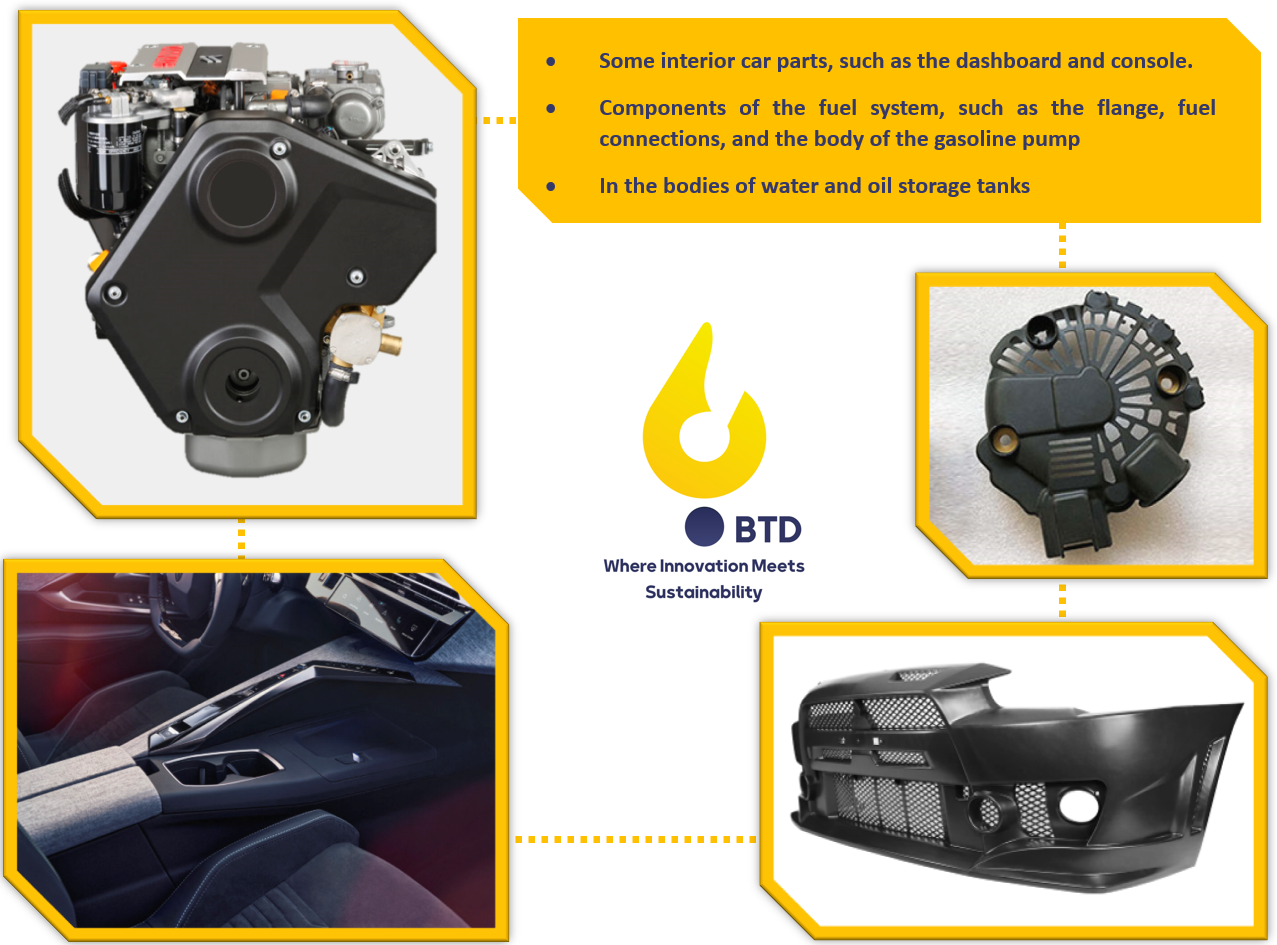
Electricity and Electronics
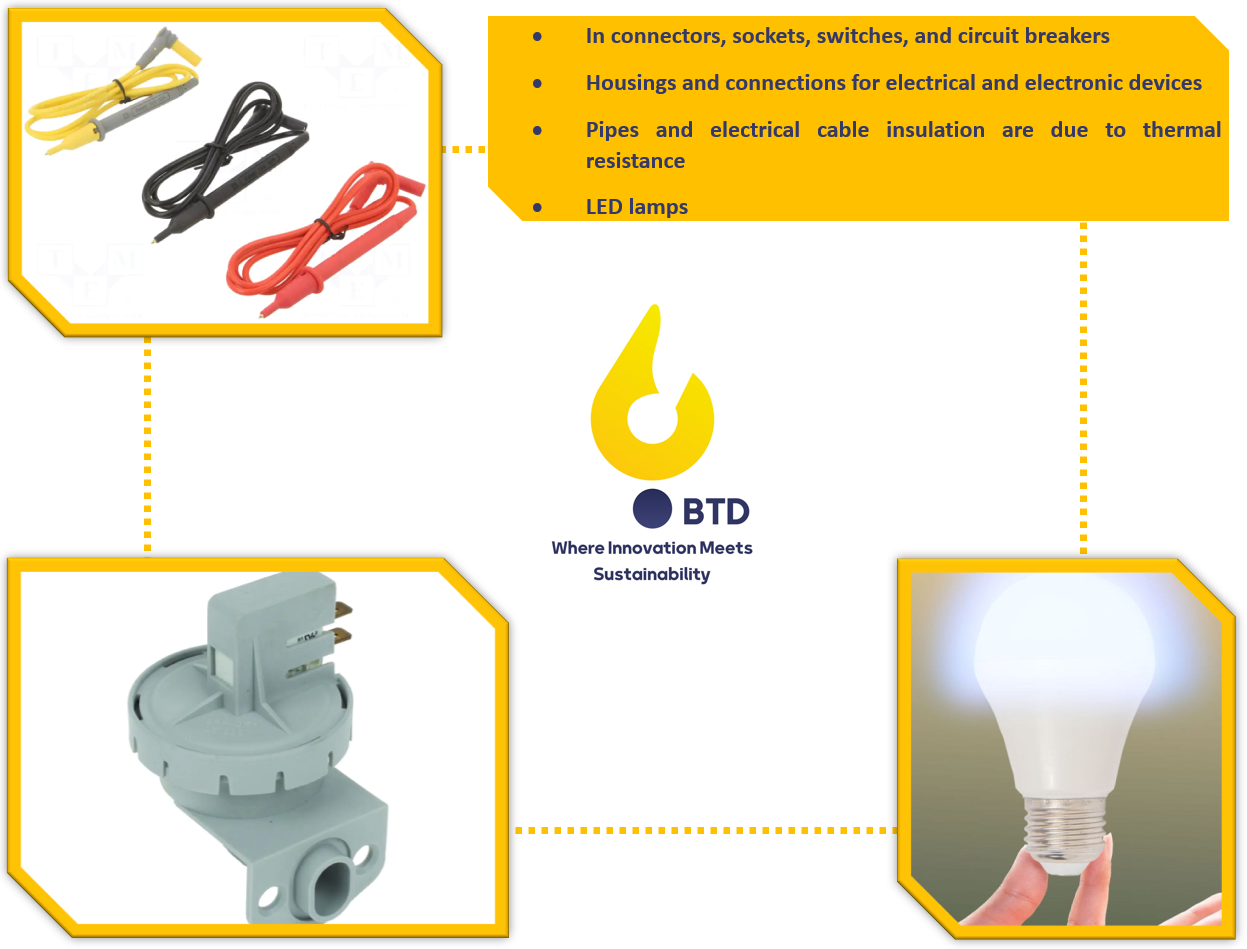
Home Appliances Industry
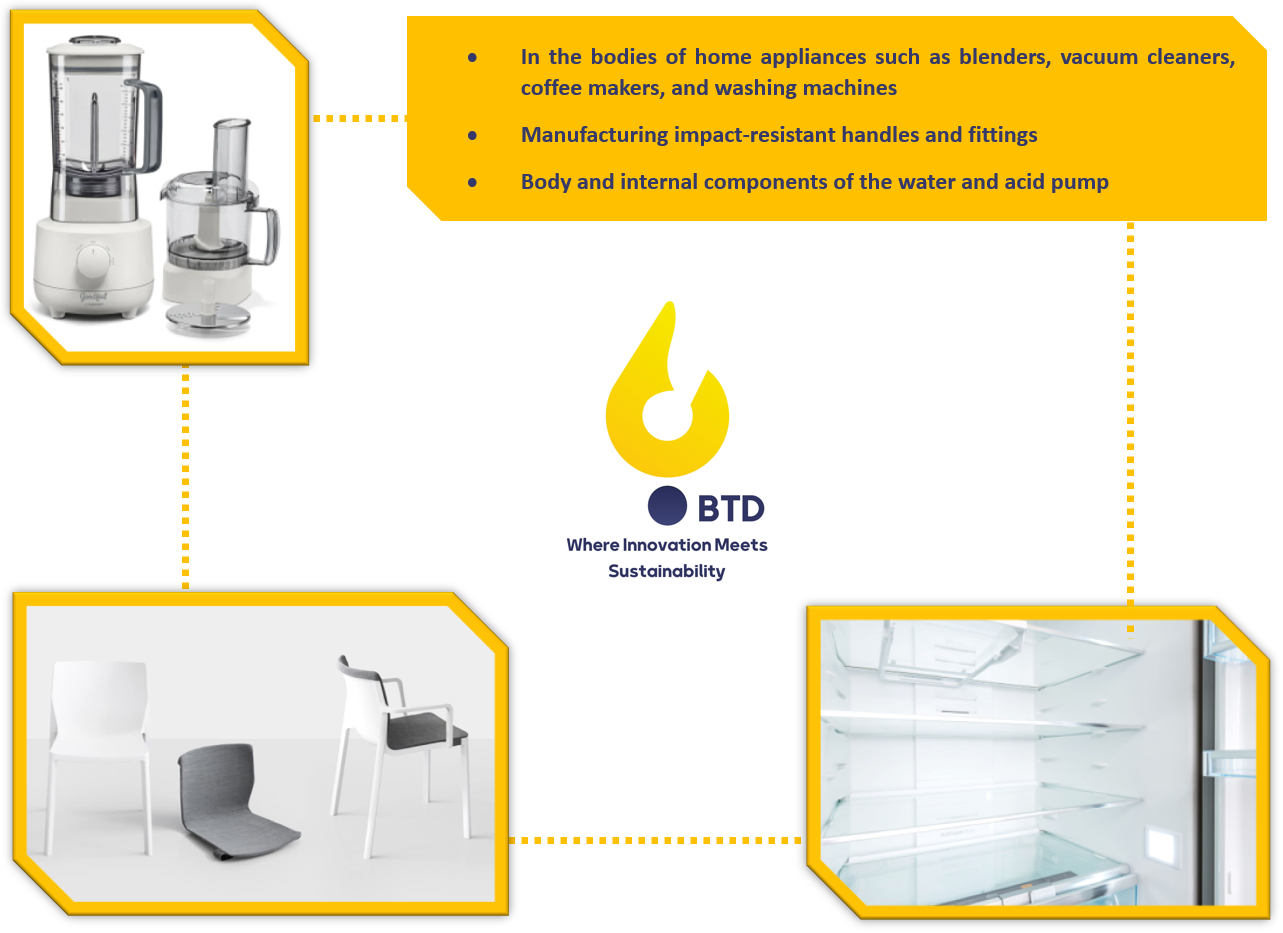
The Impact of Glass Fibers on Polypropylene’s Mechanical Properties
Studies show that incorporating glass fibers into polypropylene not only improves its strength and rigidity but also allows for designing materials with customized properties for specific applications. This innovative combination transforms polypropylene into a versatile and efficient material suitable for advanced industries.
Why Add Glass Fibers to Polypropylene?
Polymers today play vital roles in all aspects of modern life. Their applications vary depending on their type and properties. A slight change in parameters during production can significantly alter the characteristics of a plastic. Therefore, controlling these parameters enables the customization of polymers to meet specific needs. One such polymer additive is chopped glass fiber, known for its high thermal and chemical resistance.
Polymeric materials are increasingly replacing metal parts in various industries—especially automotive—thanks to their lighter weight and lower production costs. To enhance the mechanical properties of polymers and make them a viable alternative to metals, reinforcing materials like glass fibers are added.
Improving Polymer Properties with Glass Fibers
The mechanical properties of plastic-fiber composites depend on several factors: fiber distribution, fiber size, and the adhesion force between fiber and plastic. To improve bonding between plastic and fibers, glass fibers are often coated with substances like silane (SiH₄), which have low surface energy.
Key Parameters Affecting Mechanical Properties
The most critical factors influencing the mechanical properties of composites are the glass fiber content, fiber quantity, and fiber length. Therefore, many mechanical property studies of composites focus on fiber concentration and length. Typically, fibers with diameters ranging from 9 to 18 micrometers and lengths between 3 and 50 millimeters are effective. These fibers must exceed a critical length to contribute to mechanical strength. The critical fiber length (Lc) can be calculated using the formula:
Lc = (F × r) / s
Where:
F = tensile force
r = fiber radius
s = bonding strength between fiber and polymer
If the fiber length is shorter than the critical value, the fibers may be pulled out due to tensile forces, weakening the mechanical properties. Conversely, if the fiber length exceeds the critical threshold, the fibers themselves may break—at which point, the strength of the composite equals the strength of the fibers.
The Process of Adding Glass Fibers to Polypropylene
The process of incorporating glass fibers into polypropylene is commonly referred to as fiber reinforcement. Here is an overview of the typical steps:
1. Material Selection:
The appropriate type and form of glass fiber are chosen based on the desired properties of the final composite. Glass fibers vary in length, diameter, and composition, each of which impacts the final properties.
2. Compounding:
Polypropylene resin and glass fibers are mixed in precise ratios to achieve the targeted reinforcement level.
3. Melt Blending:
The mixture is subjected to melt blending processes such as extrusion or injection molding to ensure even distribution of the fibers throughout the polymer matrix.
4. Shaping and Forming:
Using methods like injection molding, compression molding, or extrusion, the blended material is formed into the desired shapes.
Through this process, significant changes in the properties of polypropylene can be achieved. The goal is to produce a reinforced composite material with improved mechanical, thermal, and dimensional properties for a wide range of applications. Commercial polypropylene compounds often advertise their enhanced strength due to added glass fibers.
What Effects Do Glass Fibers Have on Polypropylene?
Polymers are considered the best alternatives to metals. As a result, it's necessary to enhance polymer properties according to their industrial use. One effective way is adding glass fibers. When glass fibers are incorporated into polypropylene, several beneficial changes occur:
1. Increased Strength and Stiffness:
Glass fibers are known for their high tensile strength and stiffness. When added to polypropylene, they significantly enhance the composite's overall strength and rigidity.
2. Improved Dimensional Stability:
The presence of glass fibers reduces the material’s tendency to shrink or expand due to temperature changes, thus improving dimensional accuracy.
3. Enhanced Thermal Resistance:
Glass fibers raise the thermal stability of polypropylene, allowing it to maintain its shape and mechanical properties even at elevated temperatures.
4. Better Impact Resistance:
Glass fibers can increase the impact strength of polypropylene, making the material more resistant to sudden forces or shocks.
5. Reduced Coefficient of Thermal Expansion:
This feature is especially valuable in applications where dimensional stability under thermal stress is crucial.
6. Improved Surface Finish:
Glass fibers can help produce smoother surfaces in molded polypropylene parts, enhancing both aesthetics and performance.
While the benefits are substantial, it's also important to consider challenges such as increased material costs, higher processing temperatures, and the complexity of achieving uniform fiber distribution.
Differences Between Pure Polypropylene and Glass Fiber-Reinforced Polypropylene
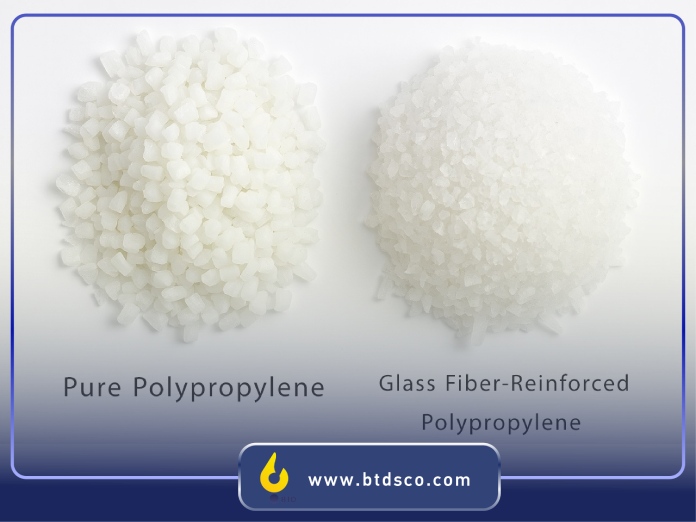
Polypropylene is one of the most widely used polymers across various industries, appreciated for its light weight, low cost, and ease of processing. However, in applications that demand higher mechanical and thermal resistance, pure polypropylene may fall short. In these cases, glass fiber-reinforced polypropylene offers an advanced solution by improving the base material's properties.
Key differences between the two include:
1. Tensile Strength:
Glass fiber-reinforced polypropylene exhibits significantly higher tensile strength due to the reinforcing fibers and their optimized orientation and dispersion.
2. Elastic Modulus:
The addition of glass fibers increases the stiffness and elastic modulus of polypropylene, making it more resistant to deformation than its pure form.
3. Impact Resistance:
Reinforced polypropylene is generally more impact-resistant, especially in high-stress or load-bearing applications.
Conclusion
Glass Fiber Reinforced Polypropylene Compound (GFRPP) is a highly versatile material that combines the inherent benefits of polypropylene (PP) with the strength and durability of glass fibers. This compound has become a preferred choice in industries such as automotive, construction, and packaging due to its remarkable mechanical properties, including enhanced tensile strength, improved impact resistance, and better thermal stability. The addition of glass fibers results in a material that not only has higher structural integrity but also exhibits greater dimensional stability under varying temperatures. GFRPP is increasingly being used for applications that require lightweight yet durable solutions, making it a valuable material in modern manufacturing processes.
